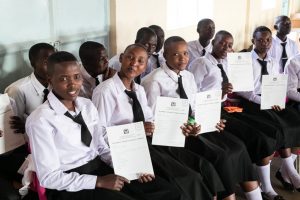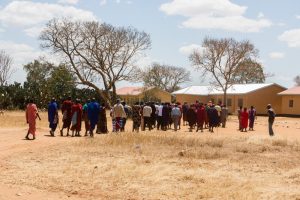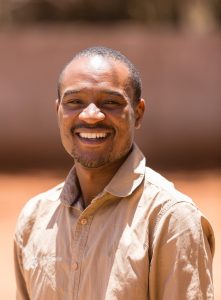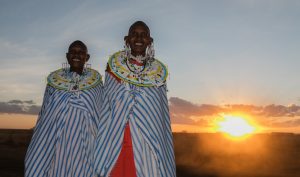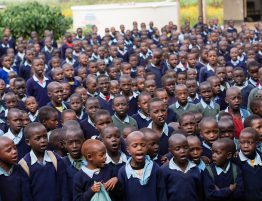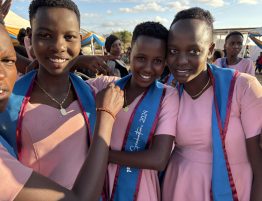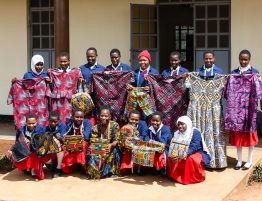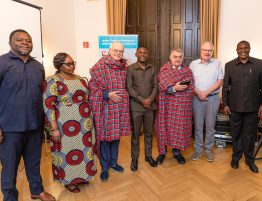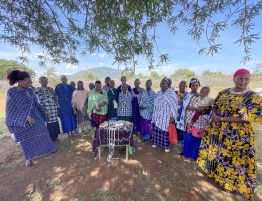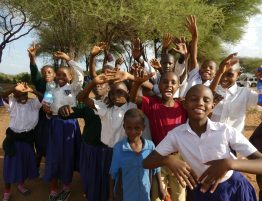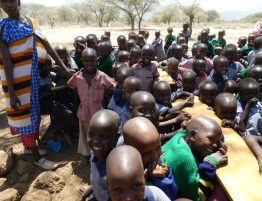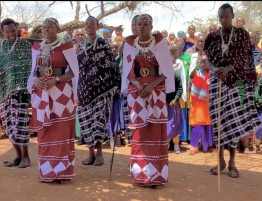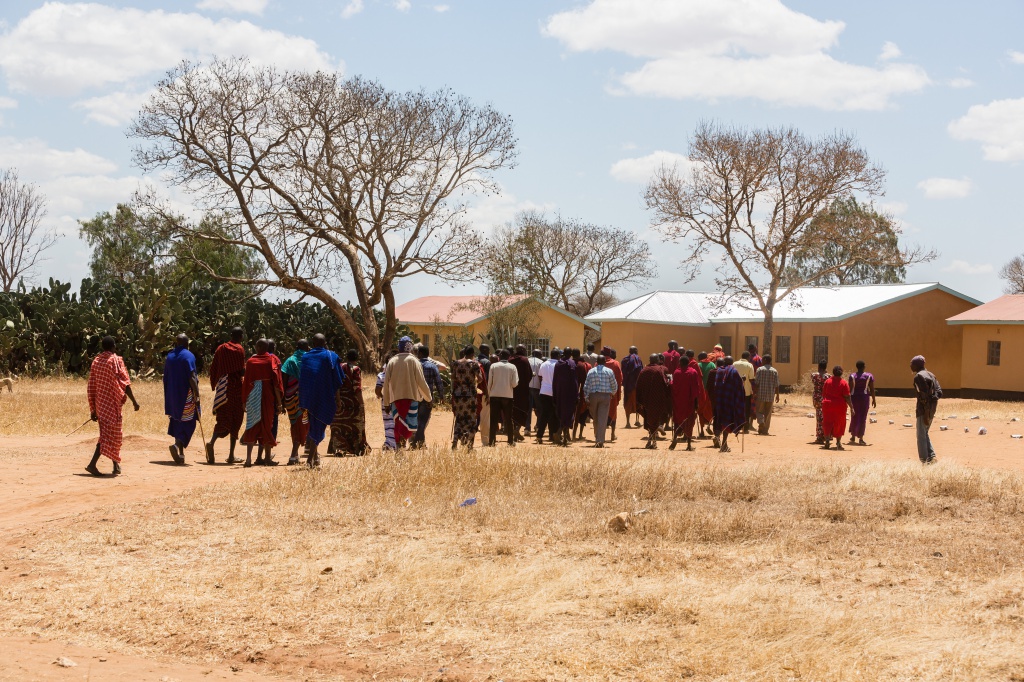
Review 2017
Also in 2017, we were able to realize all our projects as planned, although unexpected additional costs resulted again. For those who are interested, an overview of our income and expenditure in the past year is available on the home page. It also lists the organizations that have made these projects possible through their contributions and whom we thank for supporting our work.
Our most important project partner was once again the ECLAT Development Foundation in the Simanjiro district in northern Tanzania:
- The establishment of the secondary school in Emboreet was once again one of our key tasks in 2017. In the first half of the year, three science rooms (laboratories) were built, equipped and officially opened at the end of September.
Now the students can gain their first practical experience in biology, chemistry and physics. This fits all the better, as the school is particularly dedicated to science education, which was previously neglected in the secondary schools of Tanzania. Laboratories are a must for qualifying as a high school: since July, high school students have also been taught in Emboreet – it is the first and only secondary school in the whole district.
Like all secondary schools in Tanzania, this one is a boarding school. In order that the teachers can ensure order after school lessons and supervise the pupils, we started to build homes for teachers in the second half of the year: six terraced houses “under one roof”. Teachers already move in in February and the houses have been handed over to the school. The teachers are eagerly awaiting the move, as they could only rent simple dwellings in the surrounding area at a great distance from the school. -
Thanks to the generous support of various organisations, ECLAT was able to completely renovate three primary schools in the Simanjiro district in the villages of Loiborsoit, Emboreet and Narakauo in 2017. In Malambo, a village in northern Tanzania not far from the Kenyan border, ECLAT was able to build new classrooms in the last months: This school was once built for 350 children, but now more than 1100 children are to learn there – in a very cramped environment and with corresponding “success”. The expansion of the primary schools is an urgent issue for the Maasai. If we want to promote education and motivate parents to send their children to school, there must be adequate schools in sufficient numbers. No easy undertaking for an ethnic group with 70% illiteracy and high birth rates.
- The women’s work of ECLAT has taken a big step forward with the opening of the new Women’s Center in early October. Now every week one of the women’s groups comes to the center to be taught by two seminar leaders. Most of the women have never attended school, and normally their husbands barely allow them to leave the boma. But now they come together for several days in the seminar center, instead of gathering for a few hours in the village under a tree as usual. Apart from the handling of microcredits further topics in the seminars are education, hygiene or family planning.
In 2017, further groups of women each received about 800 Euros of support in the form of a micro-credit. Since women do not have their own property with the Maasai, this money means a lot to them. They shall learn to do business independently and make their own small income. In total, Philomena currently cares for about 75 women’s groups, and almost 60 groups have already received financial support. - At the beginning of 2017, we were able to put into operation the PAULA water container in the village of Sukuro. The polluted and germ-contaminated water from the reservoir is filtered through membranes so that the population is now provided with clean and hygienically clean water. Everyone in the village still has to learn to deal with this form of water supply: the population has to learn that clean water has a (low) price, the managers of the plant have to learn to provide reliable water supply for the population, the village’s water committee has to ensure that all accepted procedural rules are followed and ECLAT has to coordinate the overall project. This sounds simple and logical to Europeans, but is a big challenge for a remote village in the Simanjiro district.
In 2017, we joined forces again with the PAMS Foundation in the field of environmental and nature conservation education at several secondary schools in the neighboring Tarangire National Park. Since the wildlife of the park threatens the livelihoods of the neighbouring population and the grasslands of the parks are not available to the Maasai herds of animals as pastures, the population is hardly prepared to support the idea of animal and nature conservation. Interested students are trained weekly in the schools in special courses in environmental and nature conservation issues run by PAMS staff. When we visited the Living in Harmony with Nature course at Emboreet’s secondary school in October, I was impressed by how clearly and distinctly students were able to identify and discuss the environmental and nature conservation problems of their society. A project that is already bearing fruit and giving hope.
Outlook 2018
This year, we want to continue ongoing projects and initiate some new ones. The focus in 2018 will again be on school education, empowerment of women and nature and environmental education. We will report on the different projects in the usual way.
Author: Fred Heimbach
Photos: Rüdiger Fessel (October 2017)

